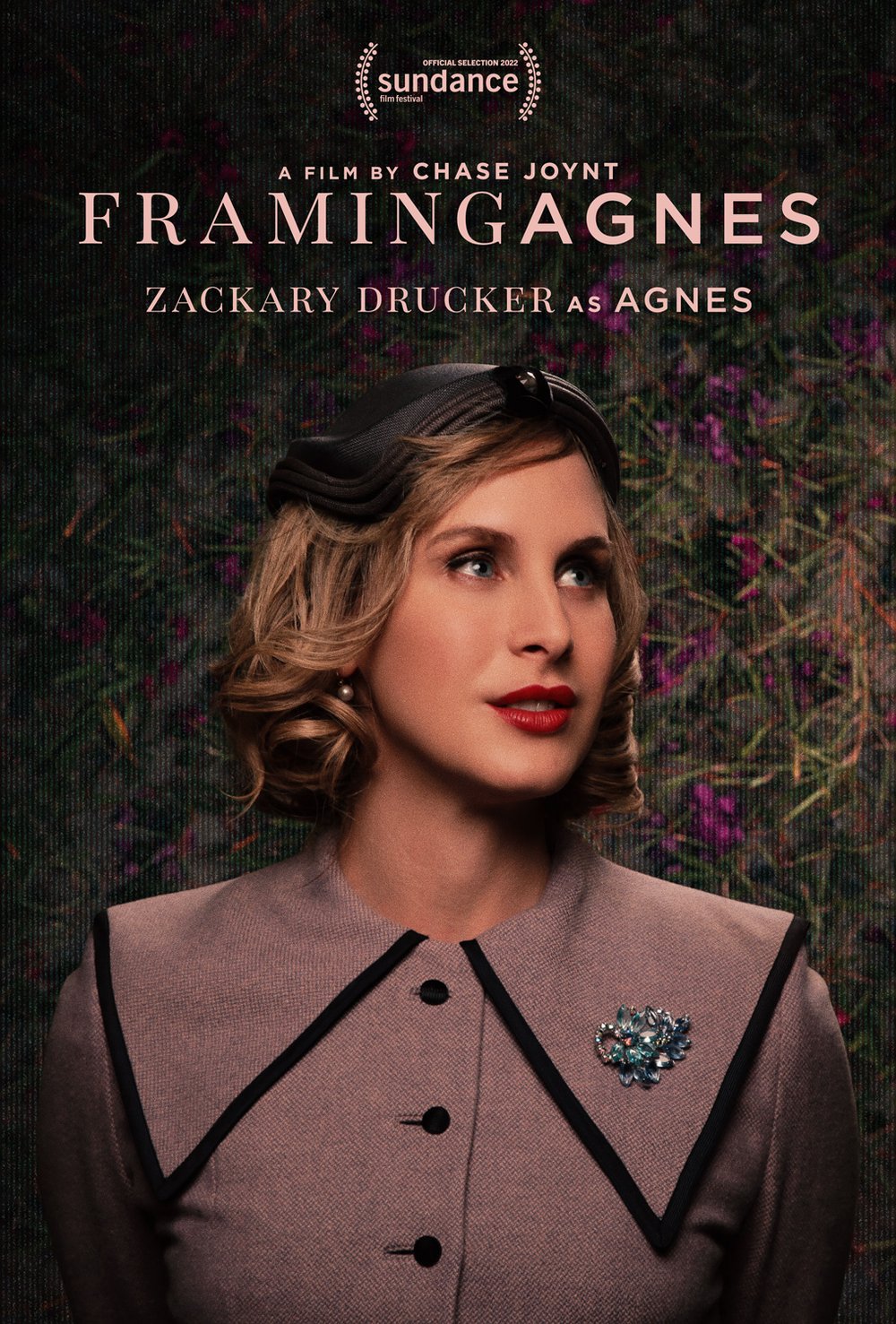 FRAMING AGNES
FRAMING AGNES
Directed by Chase Joynt
Fae Pictures; Level Ground
Trans director and co-writer Chase Joynt has expanded his twenty-minute 2019 short into a 76-minute feature that’s still not nearly long enough for all he hopes to accomplish with it. Most members of today’s LGBTQ community know very little about the transgenders who make up the “T,” hardly more than most cisgender heterosexuals know. That’s a lot of ignorance to correct in 76 minutes, especially when you’re being so creative the viewer can hardly focus on what’s being said.
In the early ‘60s, a person who called themself “Agnes” went to the UCLA Gender Clinic for reassignment surgery, falsely claiming to qualify because they were intersex. Unlike Christine Jorgensen, who became famous a decade earlier as the first person Americans had ever heard of receiving a sex change, Agnes got no publicity and soon disappeared from history. The records of UCLA’s Dr. Harold Garfinkel, which included Agnes’ story, were unearthed in preparation for Joynt’s films. Five other subjects were chosen, and transgender actors were picked to portray them. Joynt took the role of Garfinkel, but interviewing them as a ‘60s talk show host rather than a doctor or scientist.
The question-and-answer scenes, mostly from real transcripts in Garfinkel’s files, are shot in black-and-white to distinguish them from contemporary scenes in which Joynt as himself talks to the actors, sometimes comparing their own stories with those of the people they’re portraying. We learn some of what has and hasn’t changed. Historian Jules Gill-Peterson narrates, adding context by filling in general details and putting things in perspective. The six characters and the actors who play them are humanized to some extent, but there’s too little time to get to know them. Still, if Framing Agnes weren’t so good, I would not be left wanting more.
Steve Warren







